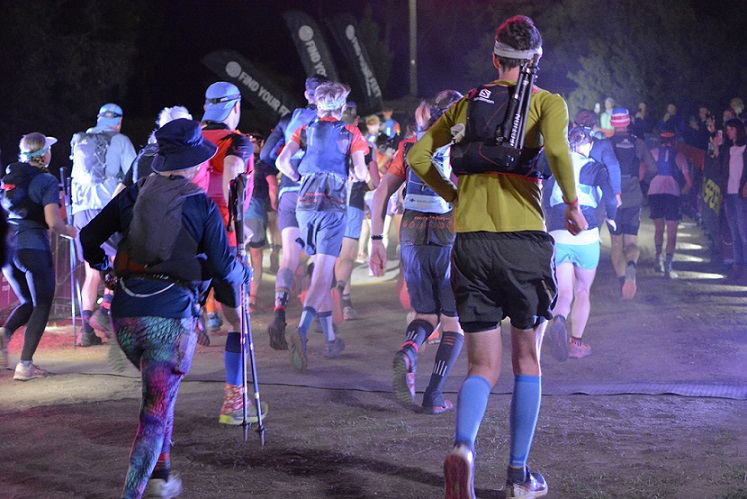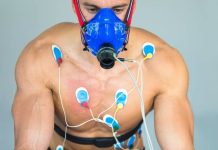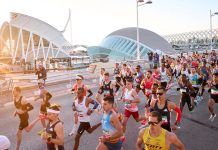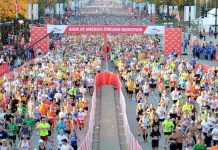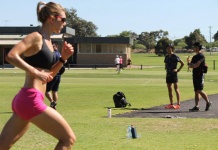Food is more accurately described as fuel for runners and not merely nutrition. Each of the three basic food groups, carbohydrates, fats, and protein, are important components of the body’s fuel supply and the wrong fuel can work against you instead of for you. Victorious runs are possible if you have the best shoes, check out Tarkine Goshawk V2 running shoes.
Muscle cells use both fat and sugar as fuel but require protein for development and repair. These can be sourced either through eating or from energy supplies already stored in the body. During a run, your body will first use the sugar found in the bloodstream and then follow by tapping stored sources.
- Carbohydrates
Carbs are the preferred energy source as they provide fuel immediately. This is one reason why energy snacks and drinks are filled with easily digested-carbs and sugar.
- Fats
Stored body fat is a great energy source for endurance sports, so if you are running a marathon or long distances, these can be important. Dietary fat also assists with vitamin absorption.
- Protein
While not a fuel source, it is vital as a muscle builder and re-builder. Running will break down muscles, so protein intake facilitates building them back up.
Power-Packed Food for Runners
When looking for foods to sustain your energy levels during running, develop and repair muscle, and support the immune system, try our favorites.
1. Bananas
This is a power-packed superfood for runners. Bananas are easy to digest and transport making them ideal to bring along. Rich in potassium, this golden fruit aids in preventing muscle cramping but also supplies vitamins C and B6 as well as a generous amount of fiber.
2. Avocados
The avocado is generous in providing approximately twenty vitamins and minerals. They actually contain even higher amounts of potassium than bananas. They are a great source of healthy unsaturated fat. Although not necessarily the type of fruit you want to carry with you to snack on, ripe avocados make fantastic snacks when spread on bread, used for guacamole, or as a substitute for butter.
3. Milk
Milk is one of Mother Nature’s superfoods. It contains vitamins A and B12, calcium, riboflavin, and much-needed protein for bone health, muscle repair, and skin and blood health. It’s great at reinvigorating you after a run.
4. Whole grains
Whole grains are a principal source of carbohydrates that fuel a runner’s energy needs. Once consumed and digested they are turned into blood glucose and used as energy. When not used the body will store this energy as glycogen in the muscles or liver. Wholegrain pasta, brown rice, oats, and couscous are all tasty options that will maintain energy levels during a run, so they are a perfect choice for a pre-run meal. Another grain to consider is quinoa offers protein and magnesium and can substitute for white flour when baking.
5. Seeds and Nuts
Small amounts of seeds and nuts provide vitamins, minerals, super healthy omega-3 and 6 fats, and protein. Want a snack? Seeds, nuts, or a combination of the two will boost your immune system and the omegas will aid heart health. You don’t need to eat more than a handful to reap the benefits. For those seeking alternative protein sources, exploring the nuanced differences between biltong vs jerky could provide valuable insights into optimizing nutrition for endurance activities.
6. Yellow and Orange Vegetables
Butternut squash, pumpkin, and sweet potatoes are major sources of carbohydrates but also contain vitamin C, beta-carotene, fiber, potassium, and magnesium. These vegetables can be eaten as side dishes or added to risotto and soups.
7. Blueberries
Mother nature’s blue jewels are packed with vitamins C and K and provide fiber. They can be added to kefir, yogurt, oatmeal, pancakes, or even be enjoyed frozen. Granola blueberry with yogurt is a terrific snack to have a few hours before a run.
8. Beets
While beets may not be everyone’s favorite food, these tubers are rich in nitrates so that your muscles utilize oxygen more efficiently during your run. Betalains contained within are powerful antioxidants that will contrast free radicals known to damage cells. Beets also contain fiber, potassium, and folate. Roasted with olive oil, they taste delightfully sweet.
9. Greek yogurt
Eaten for breakfast or as a snack, Greek yogurt is filled to the brim with healthy bacteria known as probiotics enabling digestive tract health. It contains generous amounts of protein for muscle rebuilding and calcium for bone health.
10. Eggs
Need a small, inexpensive source of protein? Eggs provide vitamins and important minerals like iron. Boiled, poached, or scrambled, eggs are a fantastic source of muscle-rebuilding protein at the end of your daily run.
Final thoughts
Eating power-packed foods is essential for keeping muscles fueled and rebuilding them afterward. Equally important is staying hydrated. When you run, your muscles heat up and your body must keep that heat under control. This is accomplished through perspiration which reduces your body’s fluids. These fluids must be replenished, so it’s important to drink before, during, and after to make sure these power-packed foods can do their job.


